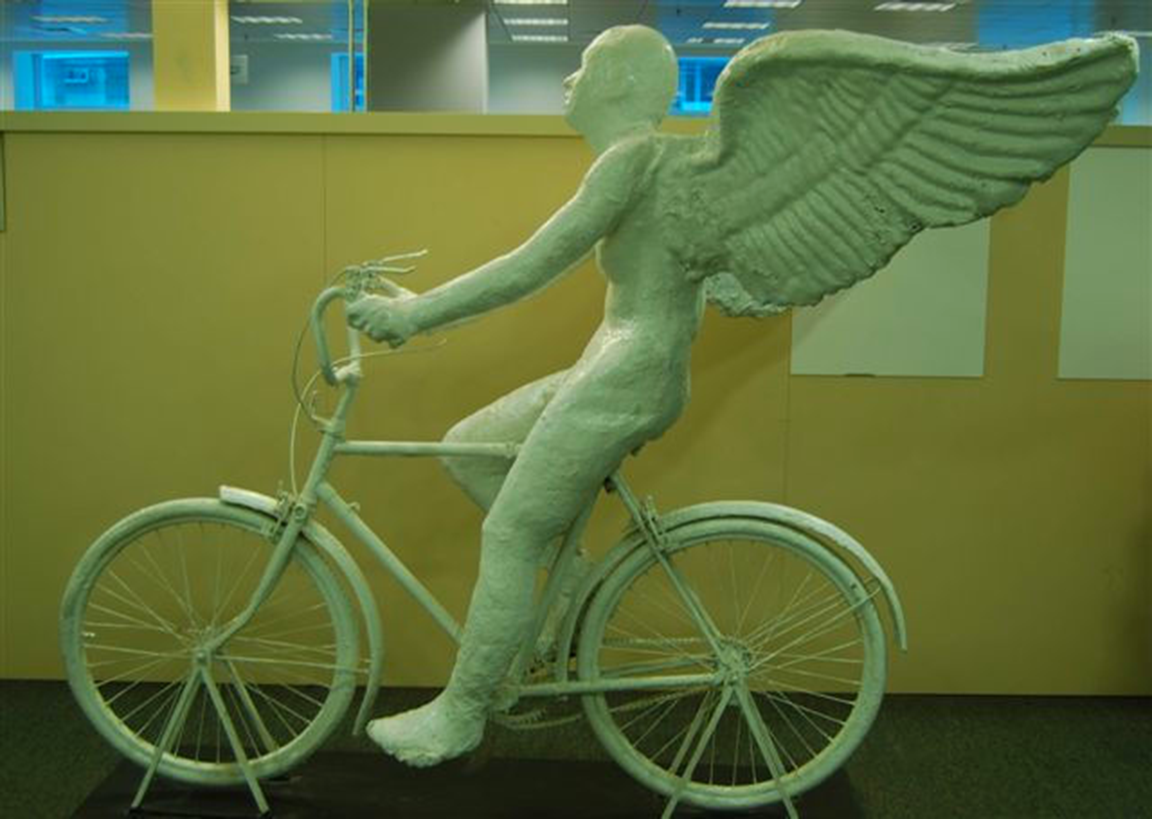The Peace Rider
Moti Mizrachi
1986
Credits
Collection of Israel Discount Bank. Courtesy of the artist.
Published in: The Posen Library of Jewish Culture and Civilization, vol. 10.
You may also like
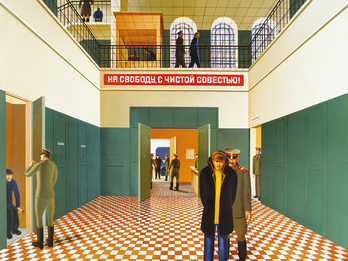
Assembly Hall, Butyrka Prison
For three years, Lamm was imprisoned in the Gulag (the Soviet system of labor camps) for applying for an exit visa, and he documented this experience in drawings and paintings. The red banner on the…
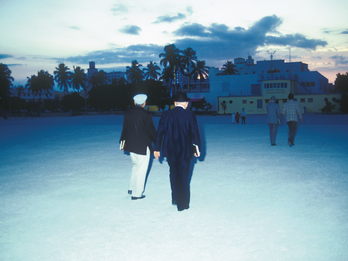
Beach Scene, Rosh Hashanah
This photograph of Jewish men on a Miami beach carrying their prayer books to synagogue on Rosh Hashanah appeared in Nagler and Isaac Bashevis Singer’s 1991 book, My Love Affair with Miami Beach. The…
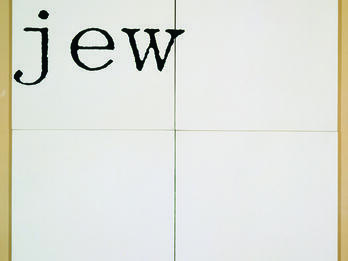
Untitled
In 1981, Anastasi (who is not Jewish) began working on a series of works featuring the word “Jew,” because of its “charged” positive and negative valences. Untitled (jew) is composed of four canvases…
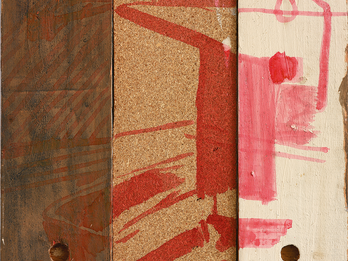
Untitled
Bar-El uses found materials as base materials, painting and writing directly onto street signs, discarded furniture, posters, and other objects that he scavenges from the streets of Tel Aviv…
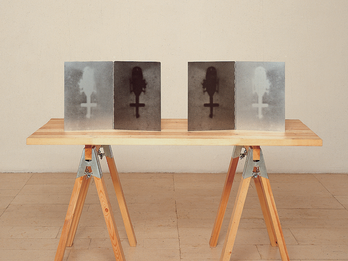
Avodat-Ach
Ninio’s art focuses on putting everyday objects into new contexts, which change their original functions, posing questions about the nature of their reality, by opening them up to new relationships…
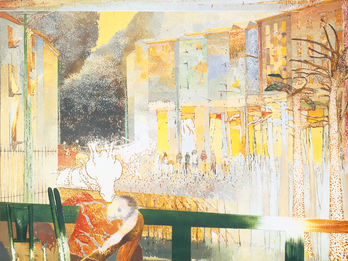
A Street in Weisswald
Petlin was known for his narrative art and for depicting subjects drawn from his own personal history. Weisswald (White Forest) is a series of nine paintings, almost all of which are set on what looks…
Engage with this Source
Creator Bio
Moti Mizrachi
b. 1946
The work of Israeli artist Moti Mizrachi has been exhibited at the Israel Museum; the Kunsthalle, Dusseldorf; The Jewish Museum, New York; and the Hara Museum of Contemporary Art, Tokyo. In 1980, he represented Israel at the Venice and São Paolo Biennales, and in 2000 at the Poznań and Valencia Biennales. Mizrachi received the Israel Prize of the Ministry of Science and Culture (2002) and the Sandler Prize for Sculpture, Tel Aviv Museum of Art (2003).
You may also like

Assembly Hall, Butyrka Prison
For three years, Lamm was imprisoned in the Gulag (the Soviet system of labor camps) for applying for an exit visa, and he documented this experience in drawings and paintings. The red banner on the…

Beach Scene, Rosh Hashanah
This photograph of Jewish men on a Miami beach carrying their prayer books to synagogue on Rosh Hashanah appeared in Nagler and Isaac Bashevis Singer’s 1991 book, My Love Affair with Miami Beach. The…

Untitled
In 1981, Anastasi (who is not Jewish) began working on a series of works featuring the word “Jew,” because of its “charged” positive and negative valences. Untitled (jew) is composed of four canvases…

Untitled
Bar-El uses found materials as base materials, painting and writing directly onto street signs, discarded furniture, posters, and other objects that he scavenges from the streets of Tel Aviv…

Avodat-Ach
Ninio’s art focuses on putting everyday objects into new contexts, which change their original functions, posing questions about the nature of their reality, by opening them up to new relationships…

A Street in Weisswald
Petlin was known for his narrative art and for depicting subjects drawn from his own personal history. Weisswald (White Forest) is a series of nine paintings, almost all of which are set on what looks…


